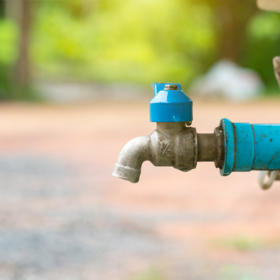
Water Potability Classification Hackathon by IndabaX Nigeria 2021
The government of Nigeria is concerned with the exponentially increasing mortality rate due to the ingestion of unsafe water.
Research has shown that the majority of the citizens living in the rural part of Nigeria do not have access to good drinking water and lack proper orientation on the constituents of safe drinking water.
Access to safe drinking water is essential to health, a basic human right, and a component of effective policy for health protection. This is important as a health and development issue at a national, regional, and local level. In some regions, it has been shown that investments in water supply and sanitation can yield a net economic benefit, since the reductions in adverse health effects and health care costs outweigh the costs of undertaking the interventions.
You have been contracted by Water Corporation in Nigeria to use artificial intelligence in automating the classification of water potability. This will serve as a decision support system for the experts in the field.
Practice on a challenge and make your first Zindi submission. Watch this YouTube video.
About Deep Learning IndabaX Nigeria 2021 (indabaxng.github.io)
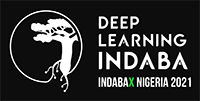
Deep Learning IndabaX is a maiden, locale-based edition of the Deep Learning Indaba annual conference, which is the largest gathering of researchers and practitioners in Artificial Intelligence across Africa. The theme for Deep Learning Indaba𝕏 Nigeria 2021 is "Localizing AI in Nigeria".
About Data Science Nigeria (datasciencenigeria.org)

Data Science Nigeria is a non-profit registered as Data Scientists Network Foundation. Our vision is to develop Nigeria’s AI ecosystem and position the country as a world-class AI skill, research and outsourcing destination with opportunity to access 2-3% share of the estimated global Artificial Intelligence GDP contribution of up to $15.7 trillion by 2030.
About AI School (phcschoolofai.org)
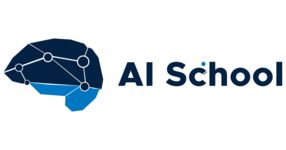
AI School (formerly "Port Harcourt School of AI") is a remote-first, non-profit organization with the cause of connecting interested individuals to quality data science and AI education and opportunities while making the knowledge and use of the technology accessible to underrepresented groups across Africa.
About AI Saturdays Lagos (github.com/AISaturdaysLagos)
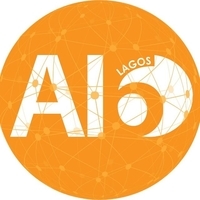
AI Saturdays Lagos is a volunteer-driven Artificial Intelligence community dedicated to teaching Data Science and Machine Learning related topics. We are a growing community of over 800 slack members. Our teaching takes the form of 16-week cohorts in which our students are immersed in our curriculum, which is curated, freely available online resources. Our cohort takes our students through the entire pipeline from formulating a problem to using a machine learning model. The outcome of each cohort is presented in the form of a final project. In addition to our commitment to teaching, we also have a research track dedicated to training a cohort of Machine Learning researchers. To learn more about us, please visit our cohort7 structure page.
About Olabisi Onabanjo University (oouagoiwoye.edu.ng)
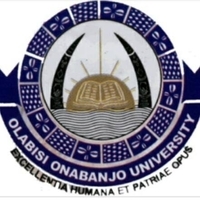
The Olabisi OnabanjoUniversity shall be the centre of academic excellence where “knowledge skills and value will be pursued relentlessly to ensure the flowering of human abilities, service to the Nigerian nation and the world at large in the wider context of traditional wisdom and culture”.
This is a private hackathon open to IndabaX Nigeria participants. If you would like to participate, please visit https://bit.ly/IndabaX2021Conference and the secret code will be emailed to you.
Teams and collaboration
You may participate in competitions only as an individual.
Multiple accounts per user are not permitted, and neither is collaboration or membership between individuals. Individuals and their submissions originating from multiple accounts will be immediately disqualified from the platform.
Code must not be shared privately. Any code that is shared, must be made available to all competition participants through the platform. (i.e. on the discussion boards).
Datasets and packages
The solution must use publicly-available, open-source packages only. Your models should not use any of the metadata provided.
You may use only the datasets provided for this competition. Automated machine learning tools such as automl are not permitted.
If the challenge is a computer vision challenge, image metadata (Image size, aspect ratio, pixel count, etc) may not be used in your submission.
You may use pretrained models as long as they are openly available to everyone.
The data used in this competition is the sole property of Zindi and the competition host. You may not transmit, duplicate, publish, redistribute or otherwise provide or make available any competition data to any party not participating in the Competition (this includes uploading the data to any public site such as Kaggle or GitHub). You may upload, store and work with the data on any cloud platform such as Google Colab, AWS or similar, as long as 1) the data remains private and 2) doing so does not contravene Zindi’s rules of use.
You must notify Zindi immediately upon learning of any unauthorised transmission of or unauthorised access to the competition data, and work with Zindi to rectify any unauthorised transmission or access.
Your solution must not infringe the rights of any third party and you must be legally entitled to assign ownership of all rights of copyright in and to the winning solution code to Zindi.
Submissions and winning
You may make a maximum of 5 submissions per day and a total of 50 submissions over the course of the hackathon.
Before the end of the competition you need to choose 2 submissions to be judged on for the private leaderboard. If you do not make a selection your 2 best public leaderboard submissions will be used to score on the private leaderboard.
Zindi maintains a public leaderboard and a private leaderboard for each competition. The Public Leaderboard includes approximately 30% of the test dataset. While the competition is open, the Public Leaderboard will rank the submitted solutions by the accuracy score they achieve. Upon close of the competition, the Private Leaderboard, which covers the other 70% of the test dataset, will be made public and will constitute the final ranking for the competition.
Note that to count, your submission must first pass processing. If your submission fails during the processing step, it will not be counted and not receive a score; nor will it count against your daily submission limit. If you encounter problems with your submission file, your best course of action is to ask for advice on the Competition’s discussion forum.
If you are in the top 5 at the time the leaderboard closes, the host of this hackathon will reach out to you via the Zindi inbox to request your code. On receipt of the message, you will have 48 hours to respond and submit your code following the submission guidelines detailed below. Failure to respond will result in disqualification.
If two solutions earn identical scores on the leaderboard, the tiebreaker will be the date and time in which the submission was made (the earlier solution will win).
You acknowledge and agree that Zindi may, without any obligation to do so, remove or disqualify an individual, team, or account if Zindi believes that such individual, team, or account is in violation of these rules. Entry into this competition constitutes your acceptance of these official competition rules.
Zindi is committed to providing solutions of value to our clients and partners. To this end, we reserve the right to disqualify your submission on the grounds of usability or value. This includes but is not limited to the use of data leaks or any other practices that we deem to compromise the inherent value of your solution.
Zindi also reserves the right to disqualify you and/or your submissions from any competition if we believe that you violated the rules or violated the spirit of the competition or the platform in any other way. The disqualifications are irrespective of your position on the leaderboard and completely at the discretion of Zindi.
Please refer to the FAQs and Terms of Use for additional rules that may apply to this competition. We reserve the right to update these rules at any time.
Reproducibility of submitted code
- If your submitted code does not reproduce your score on the leaderboard, we reserve the right to adjust your rank to the score generated by the code you submitted.
- If your code does not run you will be dropped from the top 10. Please make sure your code runs before submitting your solution.
- Always set the seed. Rerunning your model should always place you at the same position on the leaderboard. When running your solution, if randomness shifts you down the leaderboard we reserve the right to adjust your rank to the closest score that your submission reproduces.
- We expect full documentation. This includes:
- All data used
- Output data and where they are stored
- Explanation of features used
- A requirements file with all packages and versions used
- Your solution must include the original data provided by Zindi and validated external data (if allowed)
- All editing of data must be done in a notebook (i.e. not manually in Excel)
- Environment code to be run. (e.g. Google Colab or the specifications of your local machine)
- Expected run time for each notebook. This will be useful to the review team for time and resource allocation.
Data standards:
- Your submitted code must run on the original train, test, and other datasets provided.
- If external data is allowed, external data must be freely and publicly available, including pre-trained models with standard libraries. If external data is allowed, any data used should be shared with Zindi to be approved and then shared on the discussion forum. Zindi will also make note of the external data available on the data page.
- Packages:
- You must submit a requirements file with all packages and versions used.
- If a requirements file is not provided, solutions will be run on the most recent packages available.
- Custom packages in your submission notebook will not be accepted.
- You may only use tools available to everyone i.e. no paid services or free trials that require a credit card.
Consequences of breaking any rules of the competition or submission guidelines:
- First offence: No prizes for 6 months and 2000 points will be removed from your profile (probation period). If you are caught cheating, all individuals involved in cheating will be disqualified from the challenge(s) you were caught in and you will be disqualified from winning any competitions for the next six months and 2000 points will be removed from your profile. If you have less than 2000 points to your profile your points will be set to 0.
- Second offence: Banned from the platform. If you are caught for a second time your Zindi account will be disabled and you will be disqualified from winning any competitions or Zindi points using any other account.
- Teams with individuals who are caught cheating will not be eligible to win prizes or points in the competition in which the cheating occurred, regardless of the individuals’ knowledge of or participation in the offence.
- Teams with individuals who have previously committed an offence will not be eligible for any prizes for any competitions during the 6-month probation period.
Monitoring of submissions
- We will review the top 20 solutions of every competition when the competition ends.
- We reserve the right to request code from any user at any time during a challenge. You will have 24 hours to submit your code following the rules for code review (see above). Zindi reserves the right not to explain our reasons for requesting code. If you do not submit your code within 24 hours you will be disqualified from winning any competitions or Zindi points for the next six months. If you fall under suspicion again and your code is requested and you fail to submit your code within 24 hours, your Zindi account will be disabled and you will be disqualified from winning any competitions or Zindi points with any other account.This is a private hackathon open to Futarians, If you would like to participate, contact 08166700905.
The error metric for this competition is the F1 score, which ranges from 0 (total failure) to 1 (perfect score). Hence, the closer your score is to 1, the better your model.
F1 Score: A performance score that combines both precision and recall. It is a harmonic mean of these two variables. Formula is given as: 2*Precision*Recall/(Precision + Recall)
Precision: This is an indicator of the number of items correctly identified as positive out of total items identified as positive. Formula is given as: TP/(TP+FP)
Recall / Sensitivity / True Positive Rate (TPR): This is an indicator of the number of items correctly identified as positive out of total actual positives. Formula is given as: TP/(TP+FN)
Where:
TP=True Positive
FP=False Positive
TN=True Negative
FN=False Negative
For every row in the dataset, submission files should contain 2 columns: ID and target.
1 means Potable and 0 means Not potable.
Your submission file should look like this:
ID target
WGZRIT9 0
UOFLGFN 0
8F9K7D9 1
1st Place: NGN 150 000
2nd Place: NGN 100 000
3rd Place: NGN 70 000
Only participants living in Nigeria and who have a Nigerian bank account can win prizes.
The hackathon starts on 16 September at 16:00.
The hackathon closes on 23 September at midnight.
Final submissions must be received by 23:59.
We reserve the right to update the contest timeline if necessary.
Join the largest network for
data scientists and AI builders